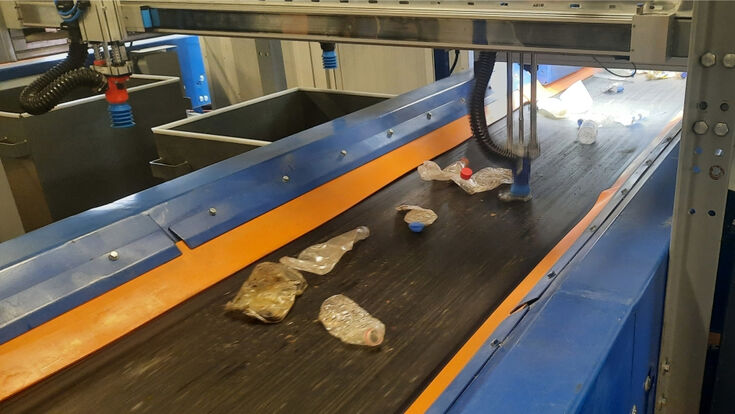Browsing Liquid Waste Challenges with Reclaim Waste Melbourne's Expertise
Browsing Liquid Waste Challenges with Reclaim Waste Melbourne's Expertise
Blog Article
The Vital Role of Correct Fluid Waste Elimination Strategies in Waste Management
In the realm of waste administration, the significance of utilizing ideal fluid waste removal techniques can not be overstated. The complex web of interconnected ecological, wellness, and safety considerations depends upon the efficient management of fluid waste. From safeguarding our environments versus contamination to supporting public health and wellness standards, the appropriate disposal of fluid waste plays an essential duty in maintaining a healthy and balanced and lasting setting. This pivotal function prolongs beyond mere waste removal, affecting a wide variety of fields and elements of our day-to-day lives. It is within this framework that the application of sound fluid waste removal methods stands as a keystone of accountable waste monitoring methods.
Relevance of Appropriate Liquid Waste Elimination
Why is proper liquid waste removal essential in keeping public and ecological health standards? Correct fluid waste elimination is crucial for safeguarding the setting and supporting public health and wellness standards. Industrial waste water treatment. Fluid waste, otherwise handled correctly, can posture major risks to ecosystems, water sources, and human health. Inappropriate disposal of liquid waste can lead to contamination of groundwater, surface area water, and soil, creating injury to aquatic life, plants, and possibly endangering human populations.
Environmental Advantages of Efficient Techniques
Applying efficient liquid waste elimination strategies not only safeguards the environment yet also plays an important role in preserving public health and wellness criteria. By making use of correct methods, such as innovative purification systems and liable disposal methods, the environmental benefits are significant. Among the key benefits is the avoidance of contamination of all-natural water sources. Inappropriate disposal of fluid waste can cause pollutants seeping right into the dirt and eventually getting to groundwater reservoirs, influencing both human wellness and ecological communities.
Additionally, effective fluid waste removal techniques aid minimize the risk of waterborne illness. Hazardous chemicals in fluid waste can have damaging results on fresh water and marine microorganisms, interfering with ecological communities and biodiversity.
Wellness Implications of Inadequate Removal
The detrimental wellness implications related to poor liquid waste elimination emphasize the crucial significance of proper disposal approaches and efficient administration techniques. Improper elimination of liquid waste can lead to the contamination of water sources, posturing serious health dangers to both people and wild animals. When fluid waste including hazardous chemicals, virus, or various other pollutants is not sufficiently gotten rid of and treated, it can seep into groundwater, rivers, and oceans, endangering the quality of alcohol consumption water and water environments.
Direct exposure to infected water because of inadequate fluid waste removal can lead to various wellness troubles, including gastrointestinal health problems, skin infections, respiratory problems, and much more extreme conditions such as organ damage or neurological conditions. Furthermore, the launch of neglected fluid waste into the setting can add to the spread of waterborne conditions, creating public wellness crises that need significant resources to address.
As a result, executing appropriate liquid waste removal techniques is vital to safeguarding public health and wellness and maintaining the integrity of ecological communities. Reclaim Waste. By focusing on effective waste monitoring methods, we can alleviate the wellness dangers connected with insufficient fluid waste elimination and promote a much healthier setting for all
Role in Protecting Against Water Contamination
Efficient fluid waste elimination techniques play a critical role in avoiding water contamination and guarding public wellness. Inappropriate disposal of liquid waste, such as unattended sewer or commercial effluents, can cause the contamination of water resources, presenting significant threats to human health and the atmosphere. When fluid waste is not effectively removed and dealt with, harmful compounds can permeate into groundwater, rivers, and oceans, infecting alcohol consumption water supplies and marine ecological communities.
Polluted water can carry an array of contaminants, consisting of pathogens, heavy metals, and chemicals, that have the potential to trigger waterborne conditions, ecological damage, and long-lasting health effects in people and wild animals. Correct fluid waste elimination techniques, such as wastewater web link treatment plants, septic tanks, and commercial effluent therapy facilities, are essential for eliminating or reducing the effects of dangerous pollutants before they can enter water bodies.
Making Sure Safe Disposal Practices
Making sure appropriate disposal practices for fluid waste is important to shield water resources and public wellness from contamination threats. Correct containment and storage space of fluid waste are critical to avoid leaks or spills that might permeate right into the dirt and infect groundwater resources.

Final Thought
In verdict, appropriate fluid waste removal techniques play a vital role in waste monitoring by preventing environmental contamination and protecting public health. Efficient removal techniques make sure the risk-free disposal of liquid waste, minimizing the unfavorable effect on ecological communities and water sources. It is critical for individuals and industries to embrace accountable practices to Continued mitigate the dangerous effects of incorrect liquid waste disposal.
In the realm of waste monitoring, the value of employing suitable liquid waste elimination approaches can not be overemphasized. It is within this framework that the implementation of sound liquid waste removal techniques stands as a cornerstone of responsible waste management practices.

Report this page